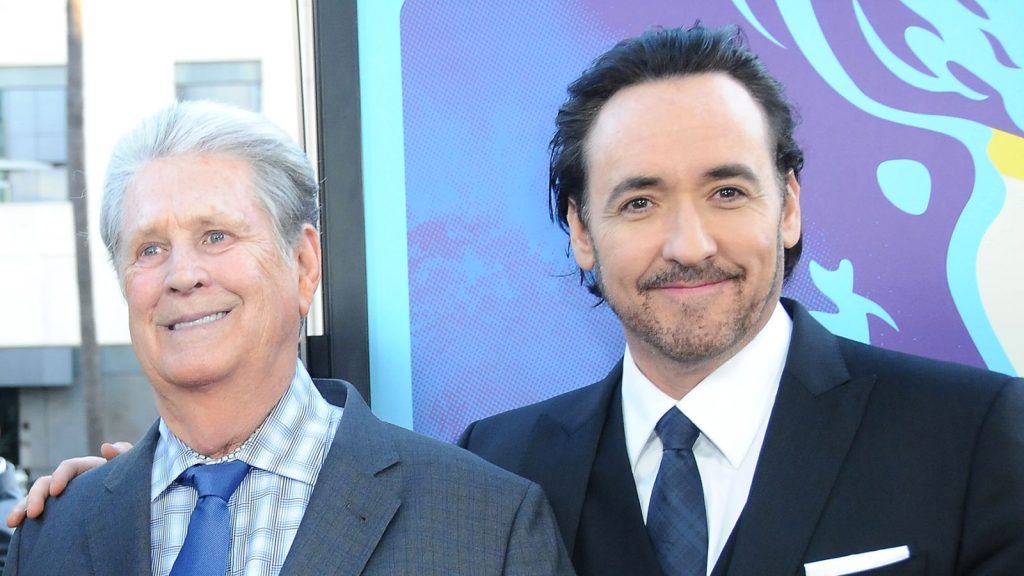In the 2014 biopic Brian Wilson Love & Mercy, John Cusack portrayed the older version of the iconic musical figure who led the Beach Boys and shaped California rock. This took place after the Smile sessions when Wilson, who sadly passed away on Wednesday at 82, became more withdrawn both musically and personally. Cusack noted that it was during this “darker period” that much less was known about Wilson, stating, “that part of his life was much less known.” To capture the essence of Wilson, Cusack was granted “extraordinary access” to his life by Wilson and his wife Melinda Ledbetter before filming commenced.
Cusack and co-star Paul Dano, who played younger Wilson, chose to avoid communication initially to bring distinct interpretations to their roles. “When we eventually met, we found we shared the same entry point into Wilson’s character focusing on the Smile sessions,” Cusack revealed. Throughout filming, Cusack maintained a connection with these sessions, using them as a lens into Wilson’s psyche, finding it fascinating they both arrived at the same approach without prior discussion.
Wilson’s kindness and willingness to share extended beyond the film. At the wrap party, he expressed a desire to perform, inviting Cusack and Dano to join him, even giving Cusack the lyrics to “Do It Again.” Their connection continued, as Cusack attended multiple concerts and even sang “Sloop John B” alongside Wilson at the 2016 Pitchfork Music Festival. “His heart was as big as you think it was,” Cusack stated, describing Wilson as an extraordinary, almost mythical figure.
Cusack emphasized Wilson’s openness regarding his struggles, noting, “He wanted to expose the darkness to help reduce the stigma surrounding mental illness.” He recognized Wilson as a complex individual, constantly immersed in music and deeply insightful about his experiences. “He had a profound awareness; he was an eccentric yet generous soul,” Cusack remarked. Wilson’s honesty about his mental health issues served not only for his own catharsis but also as a beacon for others facing similar challenges.
Recounting an impactful scene, Cusack described how Wilson unexpectedly showed up on set before a critical breakdown scene. “He arrived just before we started shooting, surprising everyone,” Cusack recalled. Their shared Hawaiian shirt attire during this moment only added to the surreal experience, which Cusack felt was further enhanced by Wilson’s magnetic presence. Wilson’s ability to absorb the energy around him while remaining true to himself was particularly striking to Cusack.
Reflecting on the culmination of the film, Wilson expressed his appreciation by writing lyrics for “Love and Mercy,” something he had never done before. Cusack found it remarkable how much Wilson had progressed from his lowest points to a place of stability and happiness. “It was a triumph of endurance,” he said, appreciating the warmth and wisdom that Wilson and Melinda displayed throughout their journey.
Ultimately, Cusack felt privileged to tell a part of Wilson’s story. He acknowledged that any portrayal could only capture a slice of such a profound life, yet he aspired to represent Wilson in a manner that resonated with his essence. “What he contributed to the world was monumental, shaking the foundations for many artists to follow,” he concluded. The importance of honoring Wilson’s legacy and the cultural impact of his music weighed heavily on Cusack, making it vital to present the narrative authentically for Wilson and Melinda.



